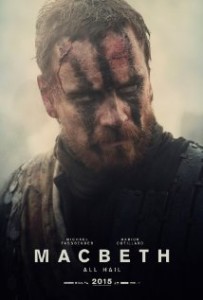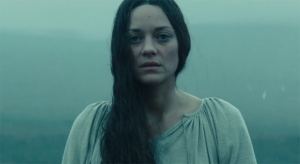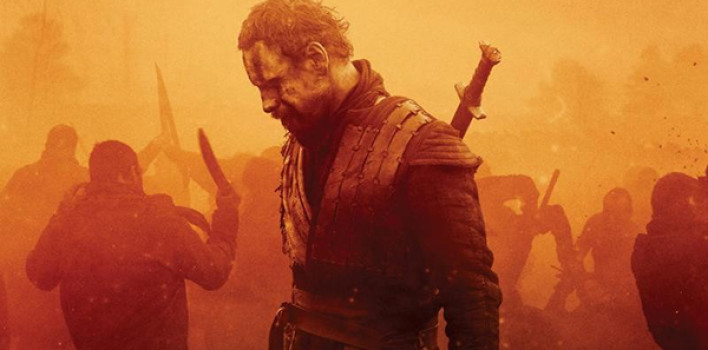Review| Macbeth
 500 years ago, Shakespeare wrote plays for the population of England and today we are still finding new ways to present them. This is marvellous. The fixed form of these old stories are playgrounds for the imagination of generations of directors, actors, set designers, and cinematographers. So when it was announced that Australian director Justin Kurzel was working on a new film of Macbeth, starring two of today’ greats – Michael Fassbender and Marion Cotillar – I got excited. When the trailers debuted with their stunning imagery, the film was projected to the top of my must see list.
500 years ago, Shakespeare wrote plays for the population of England and today we are still finding new ways to present them. This is marvellous. The fixed form of these old stories are playgrounds for the imagination of generations of directors, actors, set designers, and cinematographers. So when it was announced that Australian director Justin Kurzel was working on a new film of Macbeth, starring two of today’ greats – Michael Fassbender and Marion Cotillar – I got excited. When the trailers debuted with their stunning imagery, the film was projected to the top of my must see list.
And the film’s imagery is indeed its driving force. The wilds of Scotland are themselves a character, mist cloaked and barren, a harsh land of ragged rock and empty heaths. In this landscape, the appearance of ghostly apparitions, the arrival of witches on battlefields prophesying death and bloodshed, and the maddening of mens’ minds seem as natural as the steady arrival of mist and snow. As Shakespeare wrote, “fair is foul, and foul is fair, hover through the fog and filthy air”. Cinematographer Adam Arkapaw’s use of red flame throughout the story as a harbinger of madness is especially stunning. The lit piers of the dead, the burning stakes of Macbeth’s enemies, even the bold choice of having Birnam Wood lit on fire in battle provide a stunning contrast to the dark blues and greens of the landscape, as well as a unifying visual thread.
The sets and costumes seem summoned from a dark and dangerous past. Macbeth’s battle weary face is scarred with mud and blood like some pagan king. His village on the moors seems to have grown out of the wilderness itself. Little wonder deeds of bloodshed occurred here. As a contrast, Macbeth, when crowned king, rules a castle as cavernous as his empty and hollow victory. Cotillard is especially excellent as Lady Macbeth. Her persuasive power over her husband is completely believable, as is her growing aloofness and lonely abandonment when the madness sets in.
 With the stage set with such exquisite pieces, all that’s needed is clear direction to sweep the audience through the tragic story, but sadly, it is here that the movie stumbles. To be sure, there are moments of brilliance, especially the nightmarish hunting and execution of Macduff’s family, the horrific effect of Macbeth’s corruption. Yet Shakespeare’s story is an example of how ambition corrupts the hearts of those who cannot rest in God’s sovereign hand. It shows how a man of honour listens to the whispers of those closest to him, taking actions that are clearly wrong instead of trusting faithfulness.
With the stage set with such exquisite pieces, all that’s needed is clear direction to sweep the audience through the tragic story, but sadly, it is here that the movie stumbles. To be sure, there are moments of brilliance, especially the nightmarish hunting and execution of Macduff’s family, the horrific effect of Macbeth’s corruption. Yet Shakespeare’s story is an example of how ambition corrupts the hearts of those who cannot rest in God’s sovereign hand. It shows how a man of honour listens to the whispers of those closest to him, taking actions that are clearly wrong instead of trusting faithfulness.
In this production of Macbeth, such clarity is muddled by the overarching landscape of doom. In this world, where foul furies seem to lurk within every cloud of mist, we are hardly surprised when men, scraping out a living on its surface, succumb to such bloodshed. The very ground seems to spill forth darkness. God and His Son are only dead and distant relics and terror lurks, waiting to seize you and hold sway. From beginning to end, there is no hope of contrast, nor breath of clarity. Even the play’s most bracing speeches are whispered into the shadows. This film embodies Macbeth’s death-haunted speech,
“Life is but a walking shadow, a poor player
That struts and frets his hour upon the stage
And then is heard no more.”







